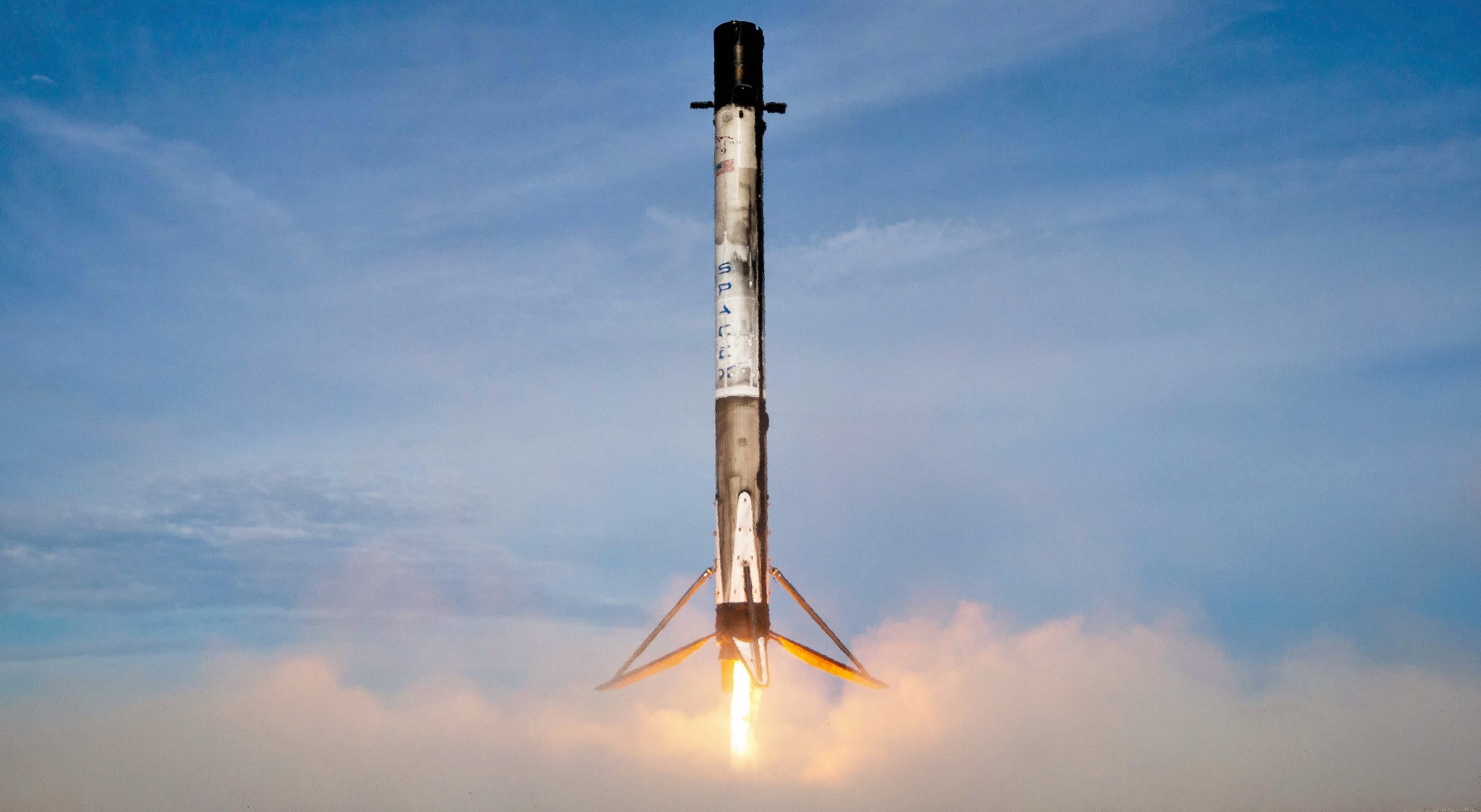
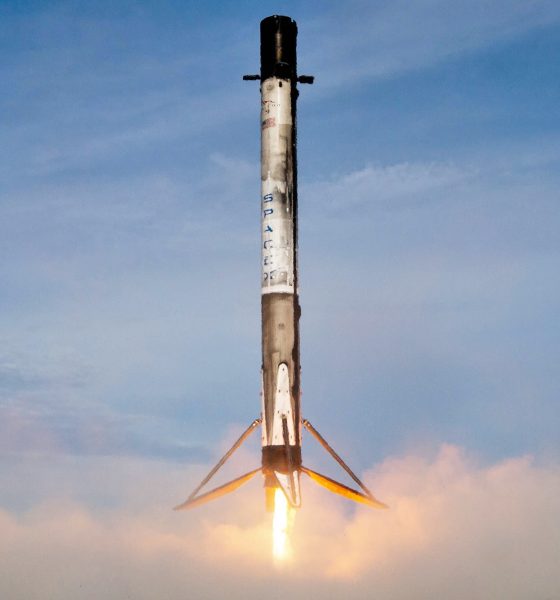
News
SpaceX Starlink launch ready to set crucial rocket reusability record on Monday
One of SpaceX’s newest Falcon 9 rockets is just a day away from setting one of the most important rocket reusability records after successfully firing up its booster engines – the last major step before the third Starlink launch of 2020.
Delayed two days from its original February 15th target, Falcon 9 is now scheduled to lift off no earlier than (NET) 10:05 am EST (15:05 UTC) on February 17th, carrying SpaceX’s fourth batch of upgraded Starlink v1.0 satellites (Starlink V1 L4). The company’s fifth dedicated Starlink launch overall, Falcon 9 booster B1056 will launch for the fourth time in support of the Starlink V1 L4 mission, becoming the fourth SpaceX rocket to do so in barely three months. While still impressive and important, B1056’s fourth mission could be record-setting for an entirely different reason.
Designed to enable at least 10 flights per booster with minimal refurbishment in between, SpaceX’s latest Falcon 9 ‘Block 5’ upgrade debuted in May 2018 and has enabled a marked improvement in both reliability and reusability. One record set just a month after that debut – and, unintuitively by a pre-Block 5 booster – has nevertheless stubbornly held over the 20 months since then. Known as booster turnaround time, the measure effectively represents the practical limits of a given rocket’s reusability by measuring how long it takes any specific vehicle to launch, be recovered, and launch again. With a little luck, Falcon 9 B1056 could break SpaceX’s existing turnaround record by a healthy margin just a few hours from now.
In first place, Falcon 9 Block 4 booster B1045 holds SpaceX’s standing booster turnaround record after launching back-to-back NASA missions just 71 days apart in April and June 2018. In second place, two Falcon Heavy Block 5 boosters (B1052, B1053) and one Falcon 9 Block 5 booster (B1048) are tied, each having managed 74-day turnarounds.
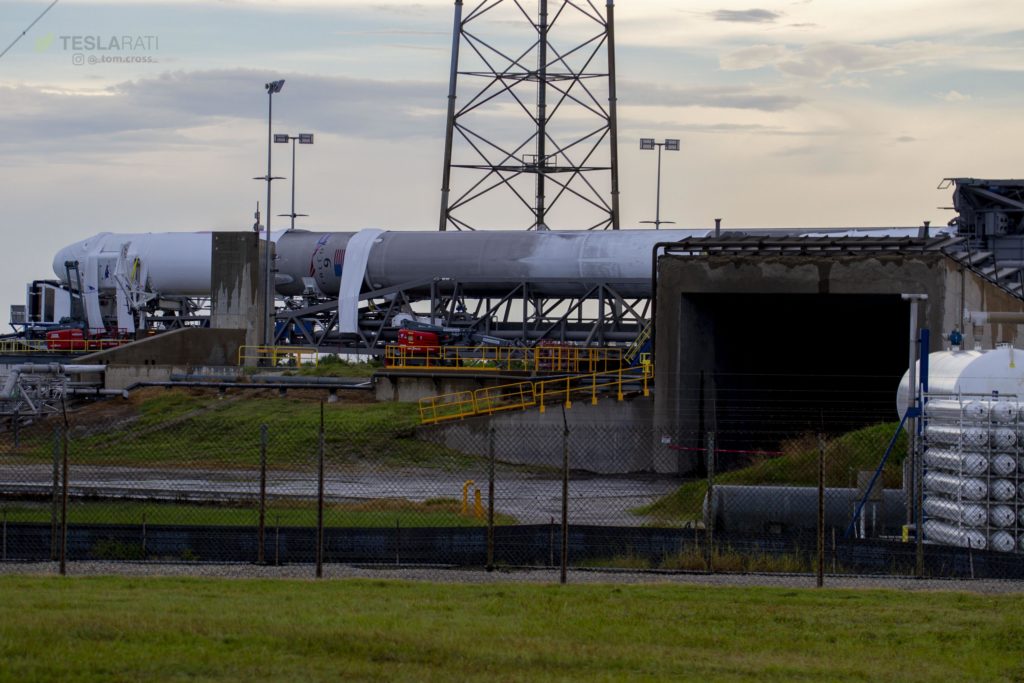
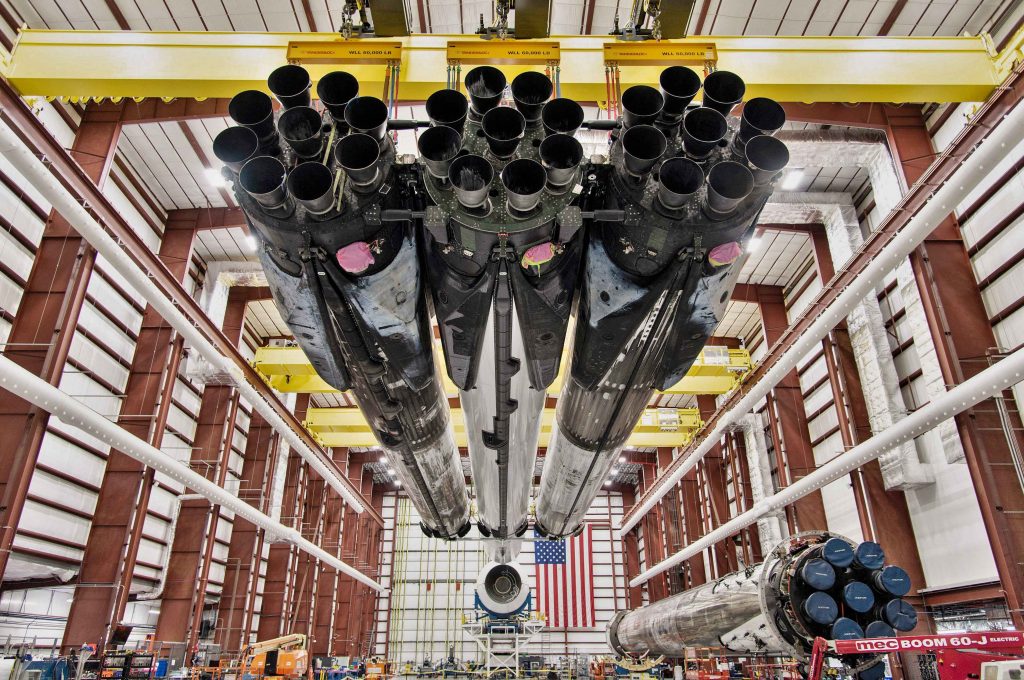
Now, Falcon 9 booster B1056 could potentially break SpaceX’s 71-day record by almost 9 days (15%) in spite of the fact that it has already performed three orbital-class launches in the last 10 months. Additionally, its third and most recent launch was a high-energy satellite mission that put B1056 through a relatively fast and hot atmospheric reentry, whereas Falcon 9 B1052, B1053, and B1045 all set their turnaround records after comparatively gentle inaugural launches, reentries, and landings.
This is all to say that B1056 breaking SpaceX’s booster turnaround record makes it feel a bit like the company isn’t really trying to break any internal records and certainly isn’t close to pushing the Falcon Block 5 design to its reusability limits. Some 18 months ago, SpaceX President and COO Gwynne Shotwell revealed that Falcon 9 Block 5 boosters were already down to just four weeks of refurbishment a handful of months after the upgrade’s launch debut.
In the history of orbital-class reusable spacecraft and rockets, NASA’s Space Shuttle Atlantis – backed by an annual operations budget on the order of $1 billion and hundreds of dedicated refurbishment engineers and technicians – holds a global turnaround record of 54 days. By the time SpaceX breaks that record, Falcon booster reusability will almost certainly be one or even two magnitudes cheaper and simpler than the Space Shuttle.
In fact, if it manages to successfully launch and land later today, Falcon 9 B1056 could be poised to break its own turnaround record later this year, given that Starlink v1.0 launches enable slightly gentler recovery conditions relative to the booster’s previous Kacific-1 mission.
Falcon 9 B1056 is currently scheduled to lift off on its fourth orbital-class launch – carrying 60 Starlink v1.0 satellites – no earlier than (NET) 10:05 am EST (15:05 UTC), February 17th, and will attempt a routine landing aboard drone ship Of Course I Still Love You a bit less than nine minutes later. Some 30-45 minutes after launch, Falcon 9’s payload fairing halves – having reentered Earth’s atmosphere and deployed parafoils – will attempt their third simultaneous landing in the nets of twin recovery ships GO Ms. Tree (formerly Mr. Steven) and Ms. Chief. Tune in to SpaceX.com/webcast around 9:50 am EST (14:50 UTC) to catch Falcon 9’s Starlink V1 L4 launch live.
Check out Teslarati’s Marketplace! We offer Tesla accessories, including for the Tesla Cybertruck and Tesla Model 3.

News
Tesla ends Full Self-Driving purchase option in the U.S.
In January, Musk announced that Tesla would remove the ability to purchase the suite outright for $8,000. This would give the vehicle Full Self-Driving for its entire lifespan, but Tesla intended to move away from it, for several reasons, one being that a tranche in the CEO’s pay package requires 10 million active subscriptions of FSD.

Tesla has officially ended the option to purchase the Full Self-Driving suite outright, a move that was announced for the United States market in January by CEO Elon Musk.
The driver assistance suite is now exclusively available in the U.S. as a subscription, which is currently priced at $99 per month.
Tesla moved away from the outright purchase option in an effort to move more people to the subscription program, but there are concerns over its current price and the potential for it to rise.
In January, Musk announced that Tesla would remove the ability to purchase the suite outright for $8,000. This would give the vehicle Full Self-Driving for its entire lifespan, but Tesla intended to move away from it, for several reasons, one being that a tranche in the CEO’s pay package requires 10 million active subscriptions of FSD.
Although Tesla moved back the deadline in other countries, it has now taken effect in the U.S. on Sunday morning. Tesla updated its website to reflect this:
🚨 Tesla has officially moved the outright purchase option for FSD on its website pic.twitter.com/RZt1oIevB3
— TESLARATI (@Teslarati) February 15, 2026
There are still some concerns regarding its price, as $99 per month is not where many consumers are hoping to see the subscription price stay.
Musk has said that as capabilities improve, the price will go up, but it seems unlikely that 10 million drivers will want to pay an extra $100 every month for the capability, even if it is extremely useful.
Instead, many owners and fans of the company are calling for Tesla to offer a different type of pricing platform. This includes a tiered-system that would let owners pick and choose the features they would want for varying prices, or even a daily, weekly, monthly, and annual pricing option, which would incentivize longer-term purchasing.
Although Musk and other Tesla are aware of FSD’s capabilities and state is is worth much more than its current price, there could be some merit in the idea of offering a price for Supervised FSD and another price for Unsupervised FSD when it becomes available.
Elon Musk
Musk bankers looking to trim xAI debt after SpaceX merger: report
xAI has built up $18 billion in debt over the past few years, with some of this being attributed to the purchase of social media platform Twitter (now X) and the creation of the AI development company. A new financing deal would help trim some of the financial burden that is currently present ahead of the plan to take SpaceX public sometime this year.
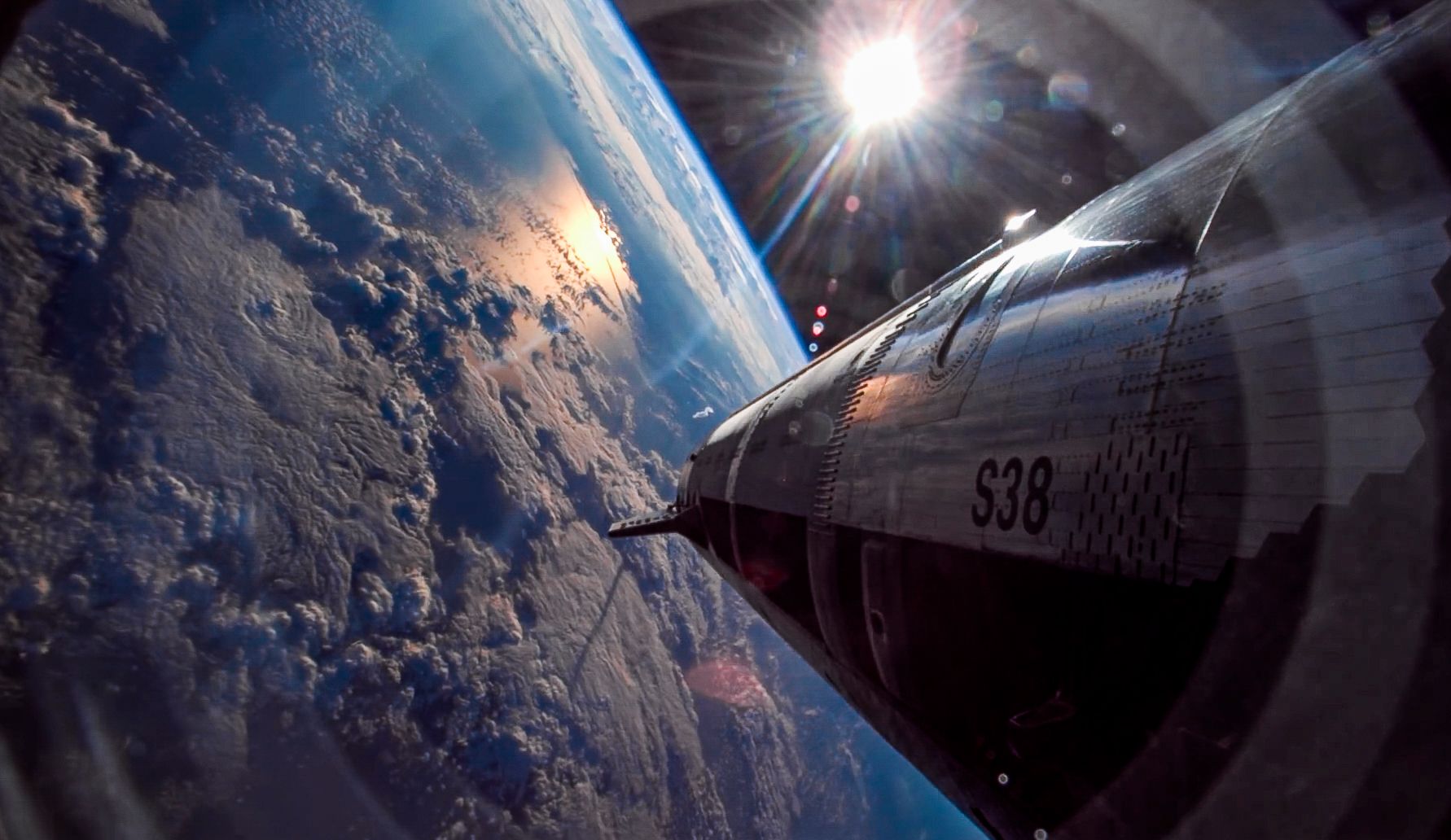
Elon Musk’s bankers are looking to trim the debt that xAI has taken on over the past few years, following the company’s merger with SpaceX, a new report from Bloomberg says.
xAI has built up $18 billion in debt over the past few years, with some of this being attributed to the purchase of social media platform Twitter (now X) and the creation of the AI development company. Bankers are trying to create some kind of financing plan that would trim “some of the heavy interest costs” that come with the debt.
The financing deal would help trim some of the financial burden that is currently present ahead of the plan to take SpaceX public sometime this year. Musk has essentially confirmed that SpaceX would be heading toward an IPO last month.
The report indicates that Morgan Stanley is expected to take the leading role in any financing plan, citing people familiar with the matter. Morgan Stanley, along with Goldman Sachs, Bank of America, and JPMorgan Chase & Co., are all expected to be in the lineup of banks leading SpaceX’s potential IPO.
Since Musk acquired X, he has also had what Bloomberg says is a “mixed track record with debt markets.” Since purchasing X a few years ago with a $12.5 billion financing package, X pays “tens of millions in interest payments every month.”
That debt is held by Bank of America, Barclays, Mitsubishi, UFJ Financial, BNP Paribas SA, Mizuho, and Société Générale SA.
X merged with xAI last March, which brought the valuation to $45 billion, including the debt.
SpaceX announced the merger with xAI earlier this month, a major move in Musk’s plan to alleviate Earth of necessary data centers and replace them with orbital options that will be lower cost:
“In the long term, space-based AI is obviously the only way to scale. To harness even a millionth of our Sun’s energy would require over a million times more energy than our civilization currently uses! The only logical solution, therefore, is to transport these resource-intensive efforts to a location with vast power and space. I mean, space is called “space” for a reason.”
The merger has many advantages, but one of the most crucial is that it positions the now-merged companies to fund broader goals, fueled by revenue from the Starlink expansion, potential IPO, and AI-driven applications that could accelerate the development of lunar bases.
News
Tesla pushes Full Self-Driving outright purchasing option back in one market
Tesla announced last month that it would eliminate the ability to purchase the Full Self-Driving software outright, instead opting for a subscription-only program, which will require users to pay monthly.

Tesla has pushed the opportunity to purchase the Full Self-Driving suite outright in one market: Australia.
The date remains February 14 in North America, but Tesla has pushed the date back to March 31, 2026, in Australia.
NEWS: Tesla is ending the option to buy FSD as a one-time outright purchase in Australia on March 31, 2026.
It still ends on Feb 14th in North America. https://t.co/qZBOztExVT pic.twitter.com/wmKRZPTf3r
— Sawyer Merritt (@SawyerMerritt) February 13, 2026
Tesla announced last month that it would eliminate the ability to purchase the Full Self-Driving software outright, instead opting for a subscription-only program, which will require users to pay monthly.
If you have already purchased the suite outright, you will not be required to subscribe once again, but once the outright purchase option is gone, drivers will be required to pay the monthly fee.
The reason for the adjustment is likely due to the short period of time the Full Self-Driving suite has been available in the country. In North America, it has been available for years.
Tesla hits major milestone with Full Self-Driving subscriptions
However, Tesla just launched it just last year in Australia.
Full Self-Driving is currently available in seven countries: the United States, Canada, China, Mexico, Australia, New Zealand, and South Korea.
The company has worked extensively for the past few years to launch the suite in Europe. It has not made it quite yet, but Tesla hopes to get it launched by the end of this year.
In North America, Tesla is only giving customers one more day to buy the suite outright before they will be committed to the subscription-based option for good.
The price is expected to go up as the capabilities improve, but there are no indications as to when Tesla will be doing that, nor what type of offering it plans to roll out for owners.








